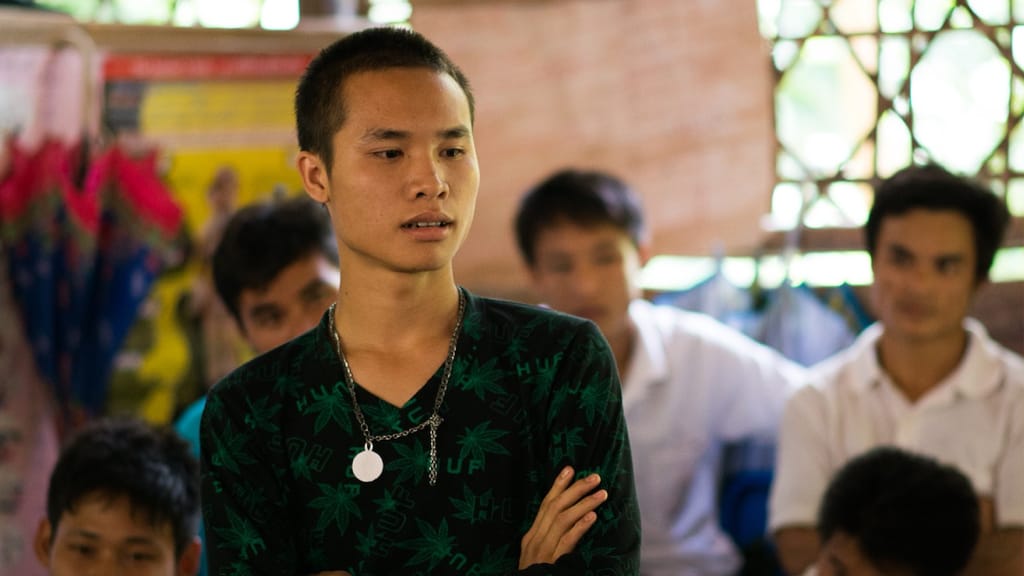Prevention, Education and Training for Addiction in camps on Thai-Myanmar border

August 27, 2020
What the project does
The Prevention, Education and Training program addresses the problem of addiction in five camps on the Thai-Myanmar border, by providing treatment cycles for addicts, prevention education to schools and communities and by training addiction workers.
The treatment cycle is a 90-day residential program consisting of detoxification, recovery, relapse prevention and reintegration. The treatment is culturally appropriate and uses natural methods: acupuncture, local herbs, yoga and water immersion.
The network success rate of over 60% is high and largely due to the social reintegration aspect of the program that ensures respect for those recovering as well as the natural methods employed.
Community prevention education reaches beyond those addicted to their families, friends and neighbors. The work reaches thousands of people in camps on the Thai-Myanmar border and inside Myanmar. Young people work with their peers in schools and through events such as frisbee matches or musical events. Posters and flyers are used to disseminate information about various substance abuse issues.
The permanent trainers provide training to new addiction workers as well as refresher training for those already volunteering. There are currently 5 camp-based trainers and one master trainer who provide ongoing training services that will reach more than a hundred people.
Long-term results
In 2014 REI funded the treatment manual that is now used by people in each camp and inside Myanmar where it can be difficult for community workers to have access.
Many clients who have gone through the treatment cycle and are continuing their recovery go on to work in the treatment centres in other camps or become community workers spreading awareness of the dangers of addiction. The manual is used by many people who work in the more distant camps as well as those returning to their villages in Myanmar.
Funding
Costs include materials for treatment clinics, food for treatment, staff salaries and utilities.
Beneficiaries
The wife of a previous client who received treatment said “Before my husband went to the treatment centre, I was unhappy. I felt as if my house was torn apart, and we were fighting constantly. When he returned back home everything had changed. Life before, and life after, cannot be compared. I was so happy to see this change in his life, and now we could build a new future together.”
Background
Many refugees have been living in camps on the Thai-Myanmar border for more than 20 years and this leads to despair and violent outbursts. Addiction can be a temporary means of escape that leads to violence, abuse and crime.
The drug trade is central to the economy of Myanmar, as it is one of the biggest producers of opium, heroin and methamphetamines in the world. Drug dealers find it easy to enter the camps.
This programme is run by DARE Network.